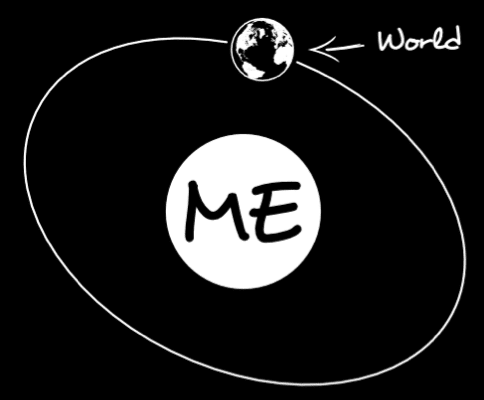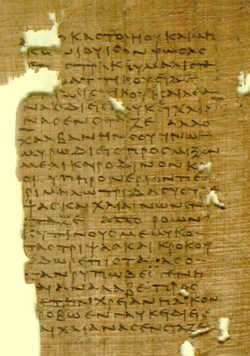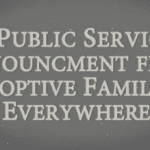The Bible is a notoriously difficult book (collection of books, actually) to understand. We’ve been wrestling with the meaning and implication of various texts within the Bible nearly since the moment it was written.
Every generation of Christians has the challenge of not only understanding the Bible, but also has the challenge of contextualizing the message to a specific time and place. However, even though studying the Bible with a heart for understanding the message is difficult, it is the most beautiful journey I’ve ever set out on. The richness found within this text is enough to occupy multiple lifetimes– and is something that I’ve quite honestly, grown addicted to.
On that same note however, with the Bible being so difficult to understand, it is also easy to completely misuse it. Such a misuse, even done unintentionally, distorts the beauty of what actually lies inside. We’ve all seen it. In fact, we’ve all done it.
Ultimately, misusing the Bible is destructive regardless of the intent of the one misusing it. If you and I are going to continue on in this quest of helping our generation find more beautiful and emerging ways of expressing the message of scripture to our culture, we’ll need to break ourselves of this horrible habit.
In order to help out, I– your faithful traveling companion– have put together a handy-dandy list of how you too, can misuse the Bible in just five easy steps:
1. Just start quoting Old Testament rules when you want to govern someone’s behavior.
Who cares if the Mosaic law was given to a nomadic tribe some 3,000 years ago– just pick one of the ancient rules they lived by and quote it whenever you need to win an argument with someone.
I remember when I got my first tattoo– I was just a teenager and somehow was able to get one by showing the old man at the tattoo shop my high school ID and saying “I’m 18, I swear”. (That aspect of what I did was totally wrong, by the way, but just keeping it authentic). Let’s just say, when I sported my new tattoo at Youth Group, the night went south pretty quickly. The youth leaders were totally kind and loving, but one of the other teens had a full on meltdown over it. I literally (not making this up) had to leave early while he chased me to my car, screaming “YOU SHALL NOT TATTOO YOURSELF, I AM THE LORD!!!!” as he waved a Bible at me. He was reaaaaallly angry.
Here’s the deal: the Old Testament is a large collection of books. Some of them are “historic narrative” and are designed to tell us the story of our ancestors. Some contain detailed sets of laws they lived by that cover everything from managing a menstrual cycle to how not to cook a goat. While these texts are some of my favorite in the Bible, this part of the Bible was NOT intended to be used as a rule book for here and now (unless we all want out-of-control sideburns). In fact, the New Testament teaches this very clearly.
It you’re picking an arbitrary rule out of this section of the Bible (especially with the motivation of applying it to “the other”) you are misusing the Bible.
2. Assume the Bible is all about YOU.
Again, who cares if these books (66 of them) were written to multiple different cultures, times, and places– it’s a book that’s all about  you, right?
you, right?
Not so much. Yes, it is a book that God has provided for us, and I do believe it is inspired, but that doesn’t mean we can just lift things out of context and blindly assume they were written all about us. As Americans, we do this every graduation season when we go to buy a graduation card for our beloved graduate. Which verse is on almost EVERY one of those cards? I don’t even have to tell you, because I think you already know– Jeremiah 29:11.
“For I know the plans I have for you,” declares the Lord, “plans to prosper you and not to harm you, plans to give you hope and a future.”
It’s a beautiful verse. The problem? It wasn’t written for graduation cards as a promise to give fine young Americans a bright career, but was a promise that God would bring Israel out of their captivity. Now, this doesn’t mean I don’t believe God has “good” plans– I remind my daughter constantly that God has a plan for her life. What it does mean however, is that as with the first principle, we can’t simply lift things from the Old Testament and use them in isolation. Whether we’re using it to demoralize “the other” or prop ourselves up, it’s still a gross misuse of scripture.
We do this with a lot of verses, and in the case of Revelation, we do it with an entire book. We must remember that this book was written for us, but not always to or about us. To view it as otherwise would be a very self-centered approach to understanding scripture.
3. Attempt to arrive at meaning without first understanding the culture it was written to.
 In hermeneutics we often say that the “primary meaning of scripture is whatever it meant to the original audience”. This is a principle we so quickly forget when interpreting both Old and New Testaments. Consider this by way of illustration:
In hermeneutics we often say that the “primary meaning of scripture is whatever it meant to the original audience”. This is a principle we so quickly forget when interpreting both Old and New Testaments. Consider this by way of illustration:
Recently one of my mates moved into an old farmhouse. While he was doing some repair work to a wall, he reached inside and found a box of old letters that were written by a child who lived on the farm during the Great Depression. In order to really dissect and understand the letters, one needs to understand the world they were written in, and the parties involved. There’s an overarching culture, a specific family, even a specific town, all of which gives the text context… there are endless factors to consider in order to truly understand those letters.
This is the same situation we find ourselves in with the Bible, especially the New Testament which is mostly a collection of letters written by Paul of Tarsus. We cannot even begin to understand what these letters could mean for us until we understand what they actually did mean to Paul who wrote them, and what they meant to the specific recipients who first read them.
We also really blow this one with the book of Revelation. For some strange reason, American Christians think that this was a book written about our time, when the book itself teaches differently. This was a book written to encourage 7 specific churches, so whatever it meant, it was meant primarily for those seven churches. The idea that John would write a letter to 7 specific churches that was exclusively about what would happen 2,000 years later, is pretty poor hermeneutics.
One cannot understand the Bible in true depth, until they understand the people and culture who wrote it, as well as the people and culture who it was written to.
4. Discount the fact that it wasn’t originally written in English.
This is a tricky principle to navigate because you can in fact, understand a vast majority of what the Bible teaches simply by reading it in English. However, one cannot discount the fact that it was not written in English– biblical languages must always play a serious consideration in the development of theology and the interpretation of texts.
Whenever one translates a document from one language to the next, they run into issues of translation. Regarding the New Testament specifically, we run into this issue because not all words or phrases in Greek will translate cleanly into English. Many words in Greek have multiple meanings, each of which carries nuance that can impact how we theologically interpret a given passage. Other times, we encounter idioms that don’t always translate precisely. This is the challenge we encounter in the translation process– translation cannot always express the original thought in the exact same way it was originally expressed.
Where we misuse scripture in this regard, is when we hold hard and fast to a specific interpretation of a specific passage in English without consideration to biblical languages. No, you don’t have to go learn them (trust me, it’s not a pleasant experience) but what it does require is holding our interpretation of a passage in humility, and with an open hand as we consult the original language.
5. Let it point you to anything other than Jesus.
In the book of John, Jesus tells the religious leaders that although they know scripture cold, they’ve missed the most important aspect– that all scripture points to him! Also, early in his ministry he tells a parable of a wise and foolish man who are both building a house. The wise man, who is centered on the teachings of Jesus, is compared to a man who chose stone as a foundation while the foolish man (who neglected the teachings of Jesus) is compared to someone who built their house on sand. Finally, in the last hours of his life, Jesus reminded his disciples that he “was the way, the truth, and the life”. According to Jesus, this thing we’re doing– and the book we read– is all about him.
As we read the Bible, we must remember that it’s all about Jesus and designed to point us towards Jesus. We must interpret everything in light of Jesus, and we must allow it to form us to be more like Jesus. If one allows the Bible to point them to anything other than Jesus of Nazareth, it is a misuse of scripture.
So read it, humbly try to understand the context, hold interpretations with humility, and let the words point you to the main character of the story– Jesus.
Yes, the Bible can be a complex set of documents to understand, and is easily misused. However, I think if we’ll be conscious of these 5 ways we too often unintentionally misuse and misread the scriptures, we’ll find ourselves on a trajectory that might be more exciting than anything we had previously anticipated.













